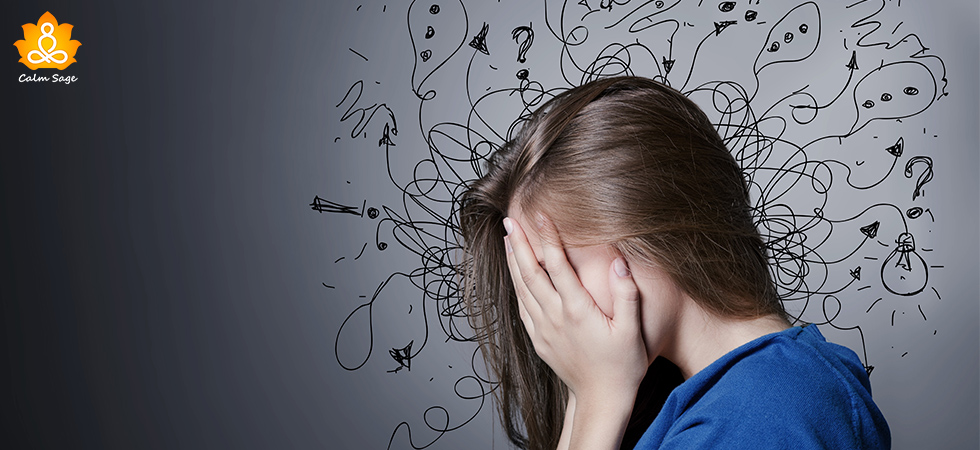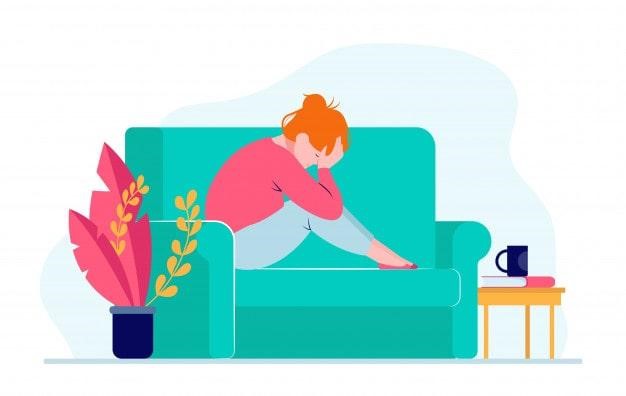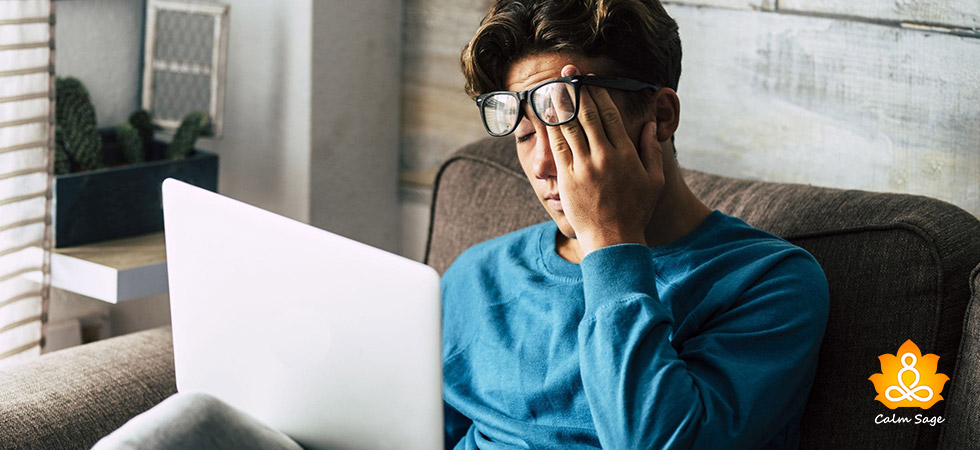What Is Free-Floating Anxiety: Symptoms, Causes & How To Cure it

When you feel a general sense of dread and uneasiness without any particular or specific cause, the feeling can be termed as free-floating anxiety. This term is used to describe the feelings of agitation, anxiety, the distress that one feels for no apparent reason.
People experiencing or diagnosed with Generalized Anxiety Disorder (GAD) normally experience free-floating anxiety but this anxiety can also accompany other anxiety or psychiatric disorders.
While free-floating anxiety is not a specific disorder recognized in the DSM-5, it is still used to explain feelings of non-specific anxiety and nervousness that people feel from time to time.
Related: What Is Second-Hand Anxiety & How To Protect Yourself From It
What Are The Symptoms Of Free-Floating Anxiety?
Anxiety is a condition that can cause you to feel physical distress as well as mental and emotional distress. Free-floating anxiety symptoms are usually mentally distressing and can be linked to feelings of dread. While sometimes these thoughts and feelings can be about something specific, many a time these thoughts and feelings can be experienced for no specific reason.
Symptoms of free-floating anxiety can be:
- Feeling anxious
- Feelings of discomfort
- Feelings of dread
- Experiencing fear
- Experiencing jitters
- Feeling nervous
- Feelings of panic and unease
- Feeling restless
- Experiencing stress
These feelings may come and go and most of the time, these feelings have no apparent source. As I mentioned before, people with GAD experience free-floating anxiety so some of the common symptoms that can be associated with the former can be:
- Trouble concentrating
- Fatigue
- Worrying constantly about day-to-day things
- Irritability
- Muscle aches and tension
- Restlessness
- Trouble sleeping
If you or someone you know is experiencing free-floating anxiety symptoms, then it is recommended you talk to a psychologist. A diagnosis can be made depending on the occurrence, intensity, and severity of your symptoms.
Based on your symptoms and your medical history, a doctor may diagnose you with either GAD, panic disorder, social anxiety disorder, or a specific phobia.
Also Read: Weighing The Differences Between Panic Disorder And GAD
What Causes Free-Floating Anxiety?

While there is no exact cause to determine why someone experiences free-floating anxiety, there are some factors that can contribute to the anxiety:
- Chemical Imbalance In The Brain: Lack or deficiency of neurotransmitters such as serotonin can cause a person to experience anxiety.
- Family History: People who have a family or medical history of generalized anxiety disorder are more likely to develop anxiety or mental health-related conditions.
- Experiencing Traumatic Events: If someone experiences negative or traumatic events, they are also likely to experience feelings of anxiety, dread, panic, and fear.
- Experiencing Stress: Long-term stress can also lead you to develop anxiety and related disorders.
If you’re experiencing free-floating anxiety, it is recommended you reach out to a professional mental health care provider for help.
Free-floating anxiety can leave a significant impact on a person’s quality of life. Worrying about nothing, in particular, can raise stress levels which can cause severe health conditions such as feeling fatigued and tired and not getting restful sleep.
It can also lead a person to experience lower levels of satisfaction, in life and professionally. Anxiety can also contribute to other mental health conditions such as depression, social isolation, substance abuse, self-harm, and thoughts of suicide.
What Is The Cure For Free-Floating Anxiety?
Treatment for free-floating anxiety normally includes psychotherapy, medications, self-help, or a combination of the above.
1. Psychotherapy
One of the most common and effective ways to treat anxiety and anxiety-related conditions is cognitive-behavioral therapy or CBT. This psychotherapy technique focuses on helping people identify the thoughts and patterns that contribute to their anxiety. CBT helps in understanding the source of these thoughts and emotions and then helps a person find effective ways to cope with such feelings.
Related: Types of Psychotherapy For Anxiety Disorders: Explained
2. Medications
Selective Serotonin Reuptake Inhibitors (SSRIs) are most commonly prescribed by doctors to help control or regulate feelings of anxiety and restlessness. Other than SSRIs, your doctor may also prescribe anti-anxiety medications or other antidepressants to help treat the symptoms of free-floating anxiety.
Self-Help Tips for Free-Floating Anxiety
Coping with anxiety, free-floating or not, is not that challenging. Whether your anxiety is due to a reason or not, these self-help tips can help you cope with it:
1. Adopting Healthy Coping Mechanisms: Avoid turning to alcohol, drugs, or other substances. While these may provide you with temporary relief, in the long run, these can harm your health.
2. Eating Healthily: Many research studies have shown that nutrition plays a significant role in managing symptoms of anxiety. Eating a healthy diet can help you regulate your symptoms as well.
3. Exercise Regularly: Staying physically active can also help reduce the symptoms of anxiety. Exercising is a great way to release pent-up tension.
3. Practicing Relaxation Techniques & Exercises. Practices like meditation, mindfulness, deep breathing, and visualization can help you take your mind off unnecessary stress and worries, and lower your anxiety.
5. Avoiding Or Limiting Intake Of Caffeine & Nicotine. Caffeine and nicotine are substances that can increase your anxiety and contribute to your jitters. Limiting or avoiding products with these substances can help you lower your anxiety.
6. Taking Healthy Anxiety Supplements: Anxiety Supplements such as St. John’s worts, ashwagandha, vitamin B, omega 3, or chamomile among others can also help you regulate your symptoms of anxiety.
Final Thoughts:
Free-floating anxiety can affect your daily functioning and can cause you psychological distress. If you’re feeling or experiencing symptoms of free-floating anxiety, it is suggested you talk to a mental health professional.
If your anxiety is left undiagnosed and untreated, it can eventually lead you to develop more serious mental health conditions. There are online resources with trained and licensed professionals to help you. You can also visit our website or write to us at info@calmsage.com for more information and help.
“There is only one way to happiness and that is to cease worrying about things which are beyond the power of our will.” – Epictetus
Take care and stay safe.




















